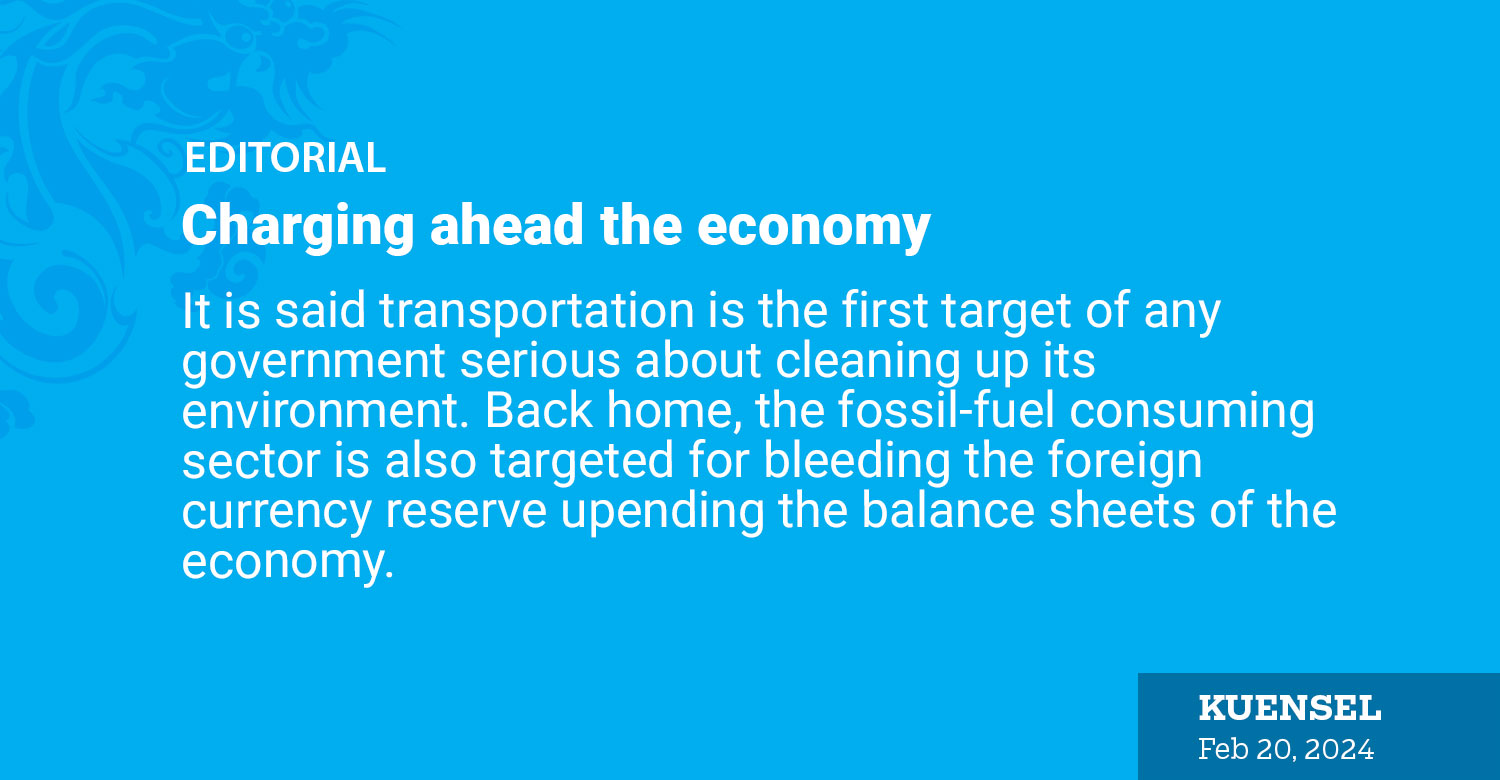It is said transportation is the first target of any government serious about cleaning up its environment. Back home, the fossil-fuel consuming sector is also targeted for bleeding the foreign currency reserve upending the balance sheets of the economy.
The growing fiscal deficit and a declining foreign exchange reserve have raised concern over the possibility of breaching the constitutional mandate to cover 12 months of essential imports. As a small and import-driven economy, the earnings from hydropower exports could iron out the economic creases in the near term. However, economic restructuring would present longer-term benefits.
A major commodity of import is fossil-fuel imports that cost the national exchequer Nu 3.3 billion to keep the country’s fleet of 126,650 vehicles, including heavy earth-moving machinery, running. By contrast, the earnings from hydroelectricity export fell by about 70 percent to Nu 218.15 million owing to poor hydrology.
When added to the steady increase in the import of vehicles, which remained unaffected even during the Covid-19 pandemic, costing the foreign reserve Nu 3.27 billion, it triggered alarm across all parties necessitating an urgent response.
Therefore, the government’s decision to ban the import of vehicles should not come as a surprise, nor the extension of the ban.
However, the ban should be complimented by the government’s effort to shift away from internal combustion engines, which globally produce 15 percent of carbon dioxide, to lithium-ion battery-powered vehicles.
But it also calls for the government to step up incentives for electric-vehicle consumers with tax breaks and subsidies, and public investments for infrastructure such as DC charging stations for speedy charging and last-mile connectivity.
In addition, the government must also invest or support investing in start-ups and the private sector engaged in the assembly, service, and maintenance of electric vehicles which would further provide the impetus for a circular economy.
Asia’s dominance in lithium-ion battery production has brought down the global price of EVs, while the largest producer of EVs, as well as the technologically most advanced, are in also Asia. The result has been a significant surge in switching to green transport in the neighbourhood. For example, in Nepal, the import of EVs surged by more than 158 percent, due to low taxes as well as low operation and maintenance costs when compared to petrol/diesel vehicles, according to a media report. In effect, it also reduced the government spending on fossil-fuel imports.
In Bhutan as well, the government’s recent decision to further extend the moratorium on vehicle import can be turned into an opportunity to shift to EVs, for public as well as private transportation. Doing so would significantly lower the fuel import bill while helping in our commitment to remain a carbon-negative country. In that, the national aim to increase the EV sale to 70 percent by 2035 from the current 4 percent, could even be achievable.


